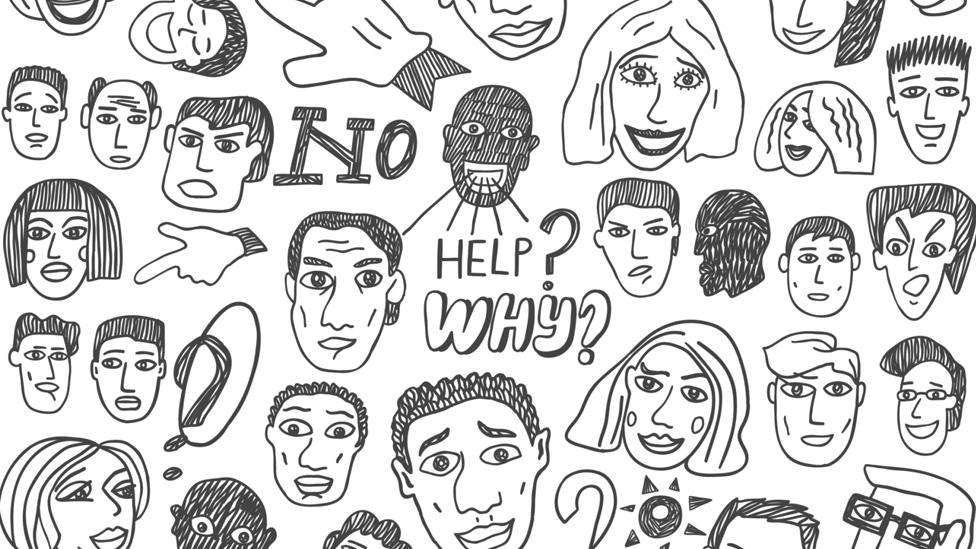Are Scottish workplaces racist?
- Published
People from ethnic minority backgrounds in Scotland still face "significant barriers" in the workplace, according to a report by a committee of MSPs.
The report said ethnic minorities largely performed better academically than white Scots.
But they were more likely to be unemployed or in low-paid work, and were under-represented in senior management roles.
Here, three people from different ethnic minority backgrounds describe some of the difficulties they have encountered.

Joseph Amouzou, 19, from Springburn in Glasgow
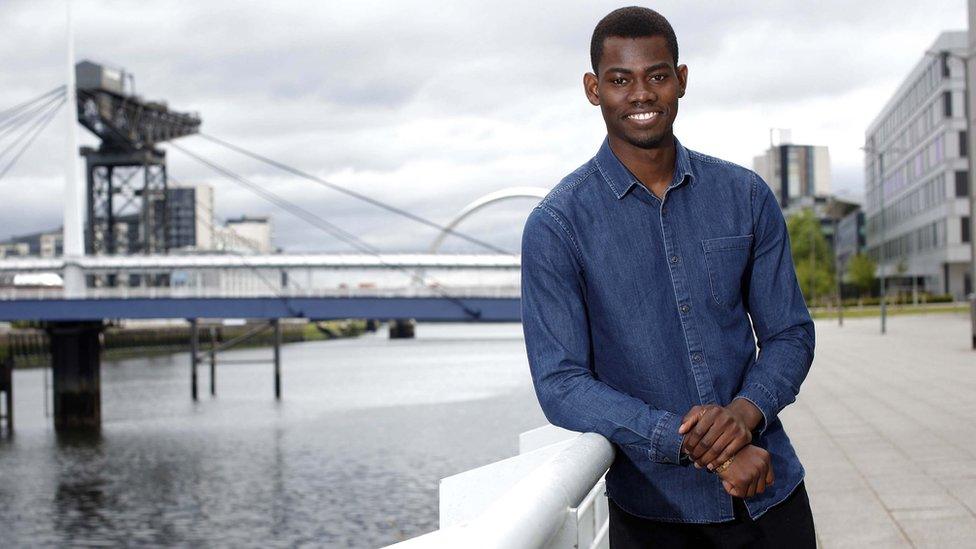
Born in Togo, Joseph moved to Glasgow aged four and is fluent in English and French. He is also Scotland's under-20s triple jump champion.
A former pupil at Bellahouston Academy's Glasgow School of Sport, he volunteers as a sports coach with Shettleston Harriers.
For a year Joseph struggled to find work, before gaining a Commonwealth Apprentice with North Glasgow Housing Association, which provides housing and support services to tenants and owners in North Glasgow.
He said: "I don't feel like I encountered any barriers during my school years. There were lots of people at Bellahouston Academy from a range of different ethnic backgrounds and I never felt we were treated differently.
"The problems started when I left school. I was at college, but getting a job was definitely my goal.
"A white, Scottish friend and I would go out together looking for work. We would hand in our CVs, but even though we had the same qualifications, he got the calls.
"I thought putting my picture on my CV would show I'm smart and presentable. But then I started to wonder if having my picture - and name - on my CV made the difference."

Ola Pawluk, 28, from Glasgow
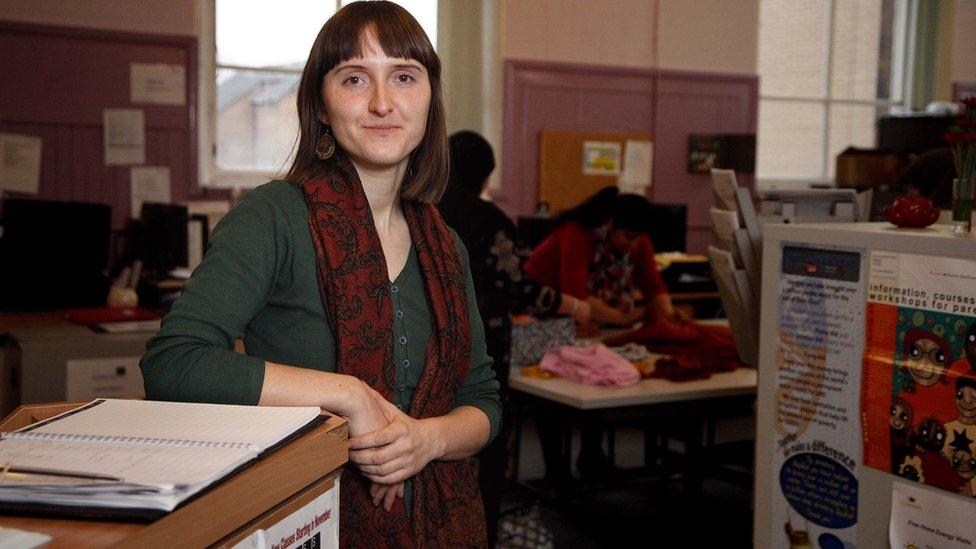
Ola is a Polish national. A university graduate, she has studied and worked in Glasgow for 10 years.
She said: "Aged 18, I arrived in Glasgow on a Tuesday and started work on Wednesday. My mother had a catering company back in Poland, so I had a lot of industry experience.
"I spoke English and I benefited from a positive stereotype. Employers would say to me, 'you're a Polish girl. You'll be hard-working. We'll take you on.'
"That was the positive side. But employers wrongly assumed I didn't have the legal right to work here and that I would work harder for less. I had to fight to get the same contract my co-workers took for granted, and to be paid minimum wage.
"My supervisor would make fun of my accent. You learned 'not to understand' certain things. It made life easier.
"The occasional client would tell me to 'get back to my own country' if I didn't serve their drink quickly enough. I would respond with a look, but only that.
"You don't want to be aggressive or start trouble. But I think I would have encountered greater challenges if I wasn't white. As a Polish national, I blended in."

Zarina Ahmad, 47, from Kilmarnock
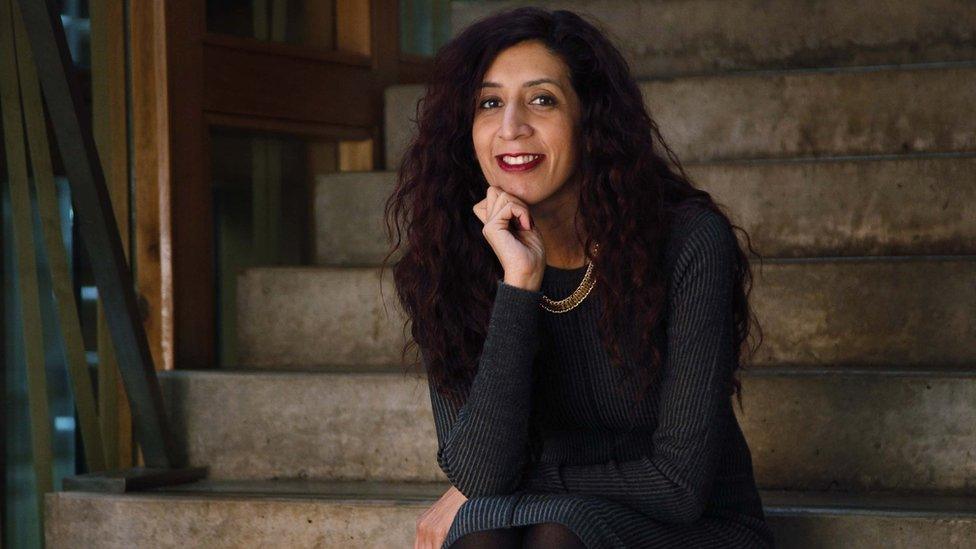
Zarina is a Climate Change and Environment Officer with the Council of Ethnic Minority Voluntary Sector Organisations (CEMVO).
She said: "Aged 16, my daughter started to apply for a Saturday job. Her white, Scottish friends have the same educational background; they take part in the same after-school activities and have the same experiences. The only difference is name and skin colour.
"It's hard when your daughter sees her white friend applying for a handful of Saturday jobs, then being taken on at £10 an hour, while she makes countless applications, before finally being given a £3.75 an hour job.
"She was in tears, asking 'what's wrong with me?'
"We're now at the stage where many Asian people living in Scotland are third or fourth generation. Our culture and language are no different from people who identify as Scottish ethnicity. The only difference often setting us apart is skin colour.
"I believe that if I had white, foreign parents, I would be seen as British by employers. But that's not the case for me or my children.
"Asian people have accepted unfair treatment when we shouldn't accept it. We don't want to 'rock the boat'. We don't want to be seen as 'problematic'.
"But third and fourth generation Asians are still not accepted, mainstream or integrated into the world of work. This needs to be tackled. We need strong, proactive leaders in anti-racism, employing similar strategies to the LGBT movement.
"We also need to recognise that there exists a culture of institutional racism and this needs to change."
- Published28 January 2016

- Published12 March 2015
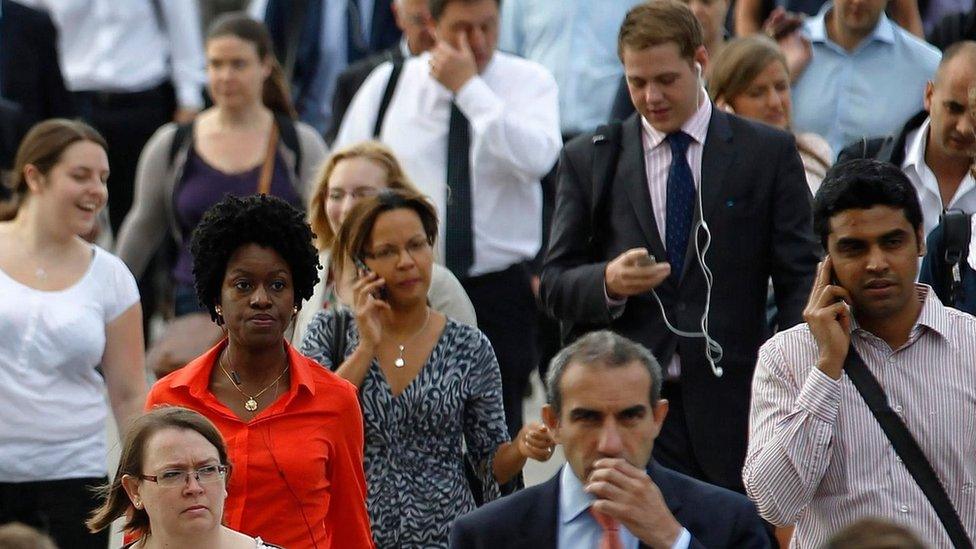
- Published10 November 2015
